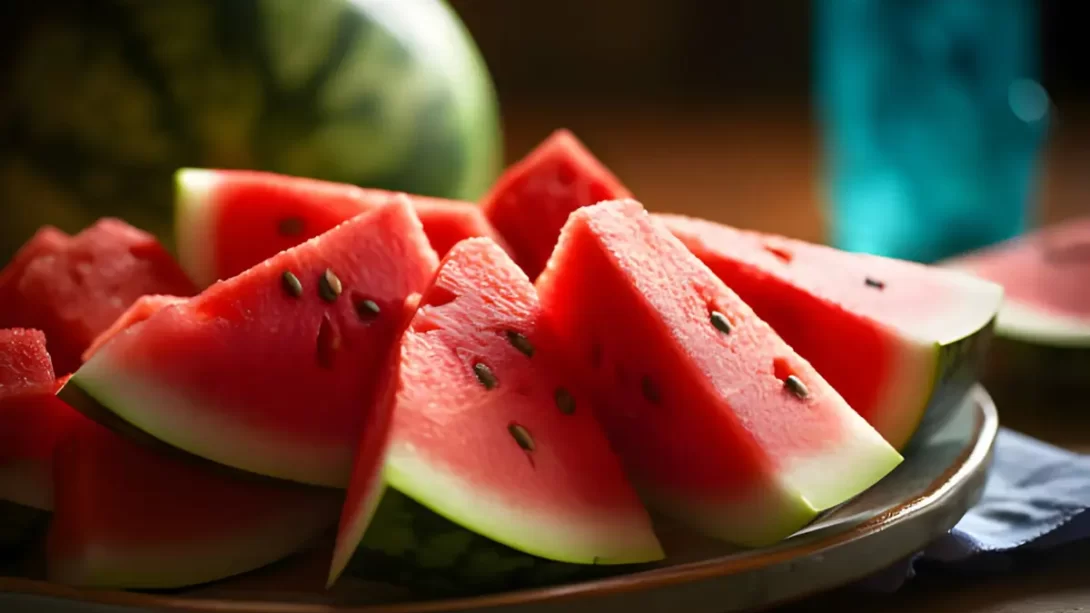Watermelon, known for its refreshing taste and hydrating properties, is a favorite summer fruit for many. Despite its popularity, there’s a common debate about the suitability of eating watermelon at night. Some believe it may lead to health issues or disturb sleep, while others see it as a harmless, nutritious snack. This article aims to explore the truth behind these claims and determine if it’s indeed bad to eat watermelon at night.
Nutritional Profile of Watermelon
Watermelon is not only delicious but also packed with nutrients. It’s rich in vitamins A and C, antioxidants, and amino acids, all of which contribute to its health benefits. A standout feature of watermelon is its high water content, making it exceptionally hydrating and low in calories. However, it’s also relatively high in natural sugars, a factor that often raises questions about its consumption before bedtime.
Digestion and Sleep
The body’s digestive process slows down during the night, and eating right before bed can sometimes affect sleep quality. The concern with watermelon is whether its sugar and water content might lead to digestive issues or disturbances in sleep. It’s important to consider how this light, watery fruit interacts with the digestive system when consumed late in the evening.
Watermelon’s Effect on Sleep
The impact of eating watermelon at night on sleep has been a topic of interest. Its natural sugar content, while not excessively high, is a point of consideration. Sugars can provide a burst of energy, which might interfere with the body’s natural winding down process before sleep. However, the high water content in watermelon is likely to be quickly processed by the body.
There is a concern that the diuretic effect of watermelon might lead to frequent bathroom trips during the night, potentially disrupting sleep. Yet, for many people, this effect is minimal. Scientific research specifically addressing watermelon consumption at night is limited, but general dietary guidelines suggest that lighter, water-rich fruits like watermelon are less likely to cause sleep disturbances compared to heavy or high-fat foods.
Benefits of Eating Watermelon at Night
Contrary to some concerns, eating watermelon at night can offer several benefits. Its hydrating nature can be advantageous, especially on hot summer nights or for individuals who don’t consume enough fluids during the day. Additionally, watermelon contains small amounts of magnesium and potassium, minerals that have been linked to improved sleep quality.
The fruit’s low calorie and high nutrient content make it a healthy choice for a nighttime snack, particularly for those monitoring their calorie intake. The key is to consume it in moderation and consider individual dietary needs or health conditions that might be affected by late-night snacking.
Best Practices for Eating Watermelon at Night
If you choose to enjoy watermelon as a nighttime snack, here are some tips to do so wisely. First, consider portion size. A small bowl of watermelon is sufficient to satisfy late-night cravings without overloading your digestive system. Eating a large amount might increase the likelihood of discomfort or sleep disruptions.
Timing is also important. It’s advisable to eat watermelon or any snack at least an hour before bedtime. This allows your body some time to process the sugars and the water content, reducing the chances of sleep disturbances. For those with a sensitive bladder or digestive system, it might be wise to allow even more time.
Individual dietary needs should always be considered. People with diabetes or those watching their blood sugar levels should be mindful of the natural sugars in watermelon. Similarly, if you have a known sensitivity to acidic or sugary foods, it’s best to avoid watermelon close to bedtime.
Conclusion
Eating watermelon at night is generally not bad for most people, provided it is consumed in moderation and with consideration of individual health circumstances. While it contains natural sugars, its high water content and nutrient profile can offer hydration and other health benefits. By following the recommended best practices for portion size and timing, you can enjoy watermelon as a refreshing, light snack before bed without significantly impacting your sleep quality.
Remember, every individual’s body reacts differently to foods, and what works for one person might not work for another. It’s always a good idea to listen to your body and make dietary choices that align with your personal health and wellness goals. Enjoying watermelon, like any aspect of a healthy diet, is all about balance and moderation.



